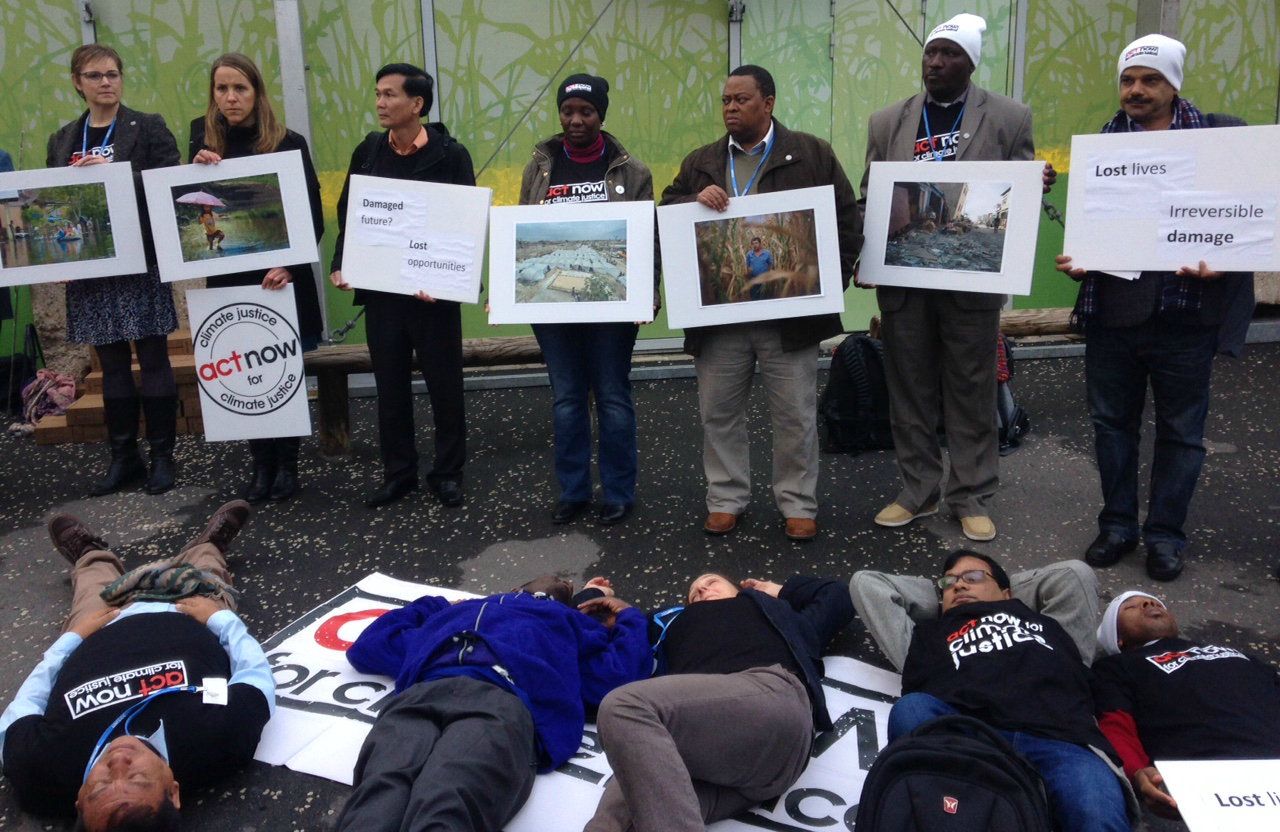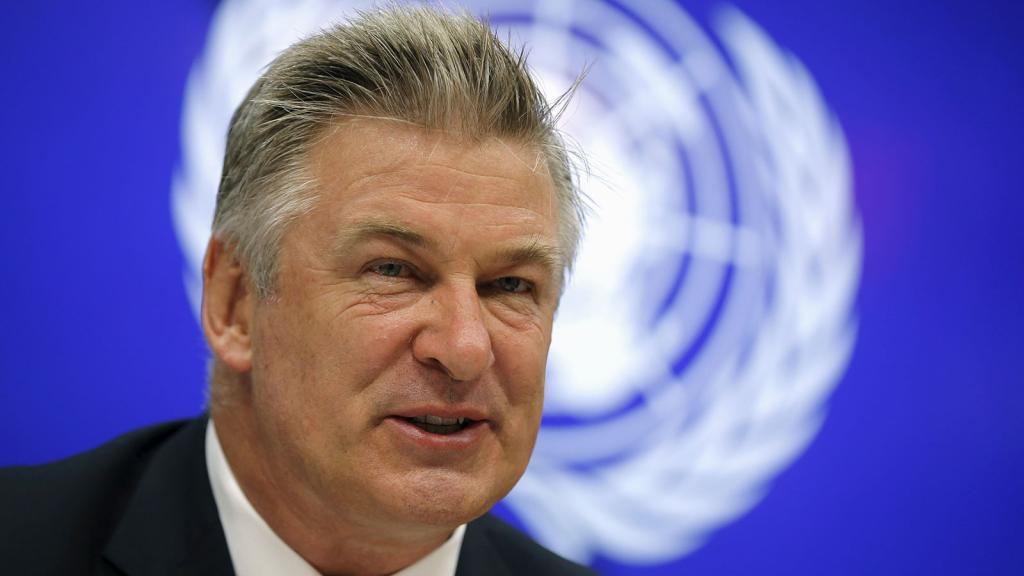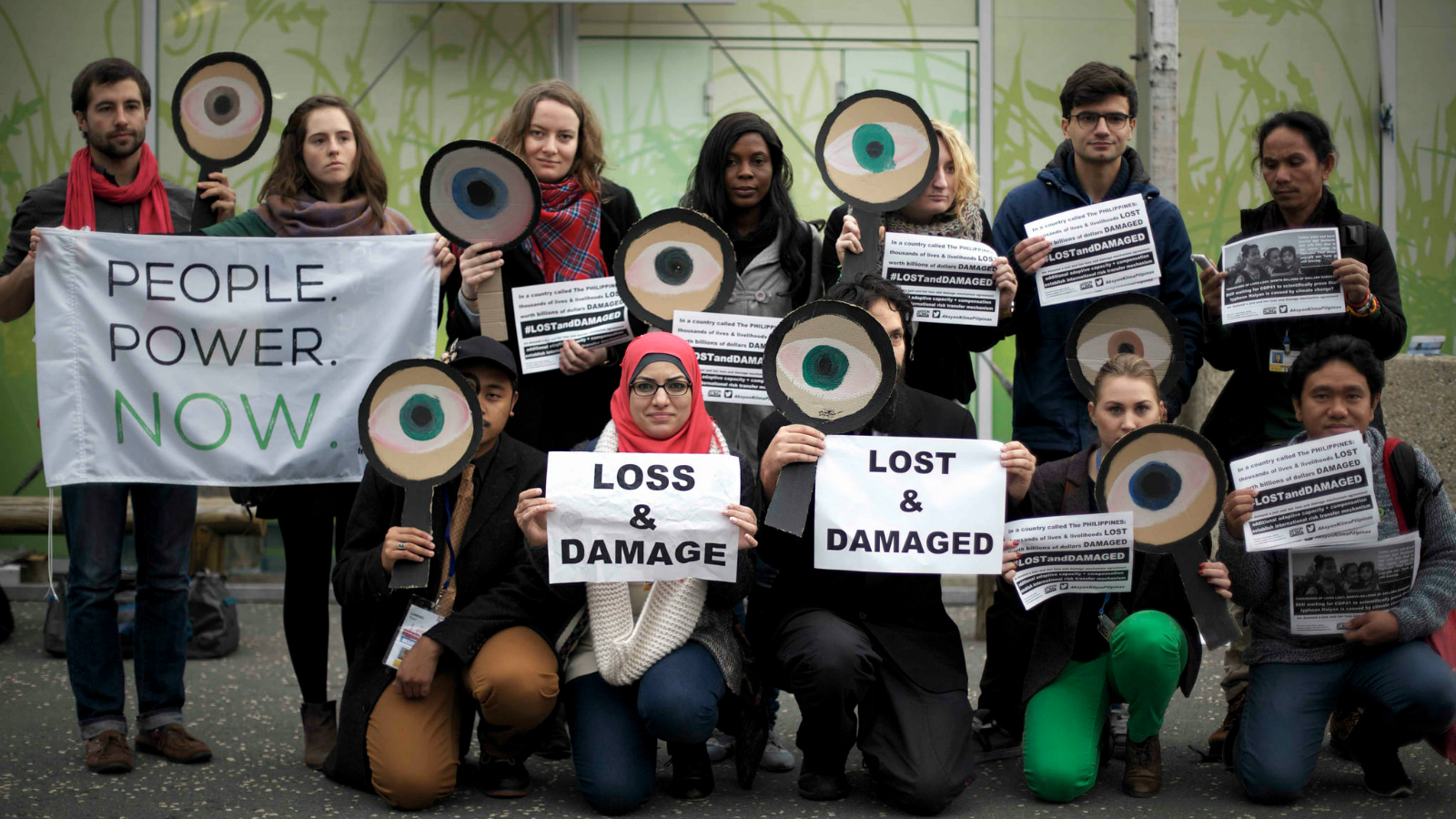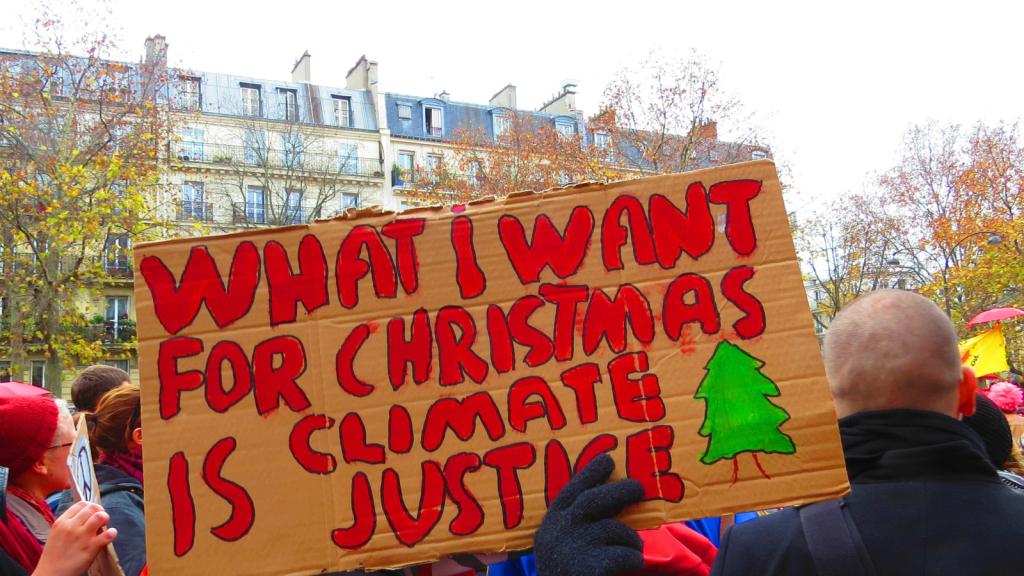PARIS, France — There’s a big sticking point in the negotiations over a global climate deal, and it centers around this little phrase: “loss and damage.” The concept has become hugely important to developing countries and climate justice advocates at the COP21 talks — and a big headache for developed countries.
The conversation around climate aid — money and assistance that goes from rich countries to poorer ones for climate change–related programs — has traditionally focused on two areas: mitigation, which means cutting or preventing greenhouse gas emissions by doing things like building up renewable energy capacity and halting deforestation; and adaptation, which means preparing for future climate changes, by taking steps such as building better drainage systems to deal with higher seas and more severe storms, and shifting to heartier crops that can withstand higher temperatures and lower rainfalls.
But now developing countries are pushing for assistance in a third area: loss and damage. This refers to irreparable losses (loss of lives, species, or land taken over by rising seas) and recoverable damages (damaged buildings, roads, power lines) — basically, to what happens when mitigation and adaptation fall short and climate disaster strikes. At this point, no matter how much we cut emissions or how much we prepare for coming changes, there will still be significant loss and damage from climate change.
Already, the devastating effects of rising sea levels, hotter temperatures, and extreme weather events are growing rapidly. Small Pacific island nations are experiencing regular flooding, which submerges roads, batters houses and seawalls, and sends populations fleeing. In nations like Bangladesh, farms are ruined by the infiltration of salt water.
And so developing countries, environmental activists, and humanitarian aid organizations are advocating in Paris right now for loss-and-damage provisions to be included in the agreement.
Climate change effects aren’t limited to developing countries, of course, but they’re a far bigger problem for developing countries than for rich ones. That’s partly for geographic reasons: Many poorer nations are in hot desert or tropical regions, where the effects of warming can be particularly acute. Mostly, it’s because they lack the wealth and technical capacity to cope with loss and damage on their own.
And the grim irony is that these problems are not of their own making: It is the rich countries, which reaped the benefits of fossil fuel–powered growth, that are causing climate change and are best able to shoulder its costs.
To draw attention to the issue, on Friday morning, ACT Alliance, a coalition of 137 churches and affiliated organizations aiding the poor in more than 100 countries, staged what they candidly referred to as a “loss and damage ‘Die-In’ campaign stunt” at the COP21 conference venue outside Paris. Eight employees of their member groups from throughout the Global South lay on the ground to symbolize those killed by extreme weather, while 15 of their colleagues stood behind them holding photos from storm- and flood-ravaged places, chanting, “Leave no one behind! Climate justice now!”

The “die-in.”
“Many of our members are from Bangladesh, the Philippines, Central America, many parts of Africa that are experiencing extreme impacts of climate change already,” said Allison Doig, a climate change and sustainable development expert at Christian Aid, part of ACT Alliance. “We work on sustainable agriculture, we work on health issues. We were brought into the climate movement because our programs around the world are affected by climate change.”
Will loss and damage make it into the final agreement?
At the COP19 climate conference in 2013, in Warsaw, Poland, negotiators agreed to review the loss-and-damage issue for three years, known as the “Warsaw International Mechanism.” Now advocates want that to become a permanent part of the U.N. Framework Convention on Climate Change, the overarching frame for all COPs and agreements.
Developed countries, however, have been reluctant to accept loss-and-damage provisions in the deal being hammered out in Paris, since the phrase and concept “loss and damage” evoke legal liability. Rich countries adamantly do not want even the specter of admitting liability and compensation obligations for the effects of climate change. And how would it even be determined which disasters or impacts are related to the changing climate? Scientists cannot directly attribute any given hurricane or drought to higher greenhouse gas levels, only the increased frequency and severity of such events.
Imagine the political reaction in the U.S. if President Obama signed an agreement putting the nation on the hook for climate-related losses all over the world. Last week, U.S. Secretary of State John Kerry said to Rolling Stone about loss and damage, “We’re not against it. We’re in favor of framing it in a way that doesn’t create a legal remedy, because Congress will never buy into an agreement that has something like that … the impact of it would be to kill the deal.”
But developing countries are just as clear that leaving loss and damage out entirely is a deal-breaker for them. “We do not foresee an outcome in Paris without loss and damage,” Pa Ousman Jarju, chair of the Least Developed Countries group of 48 nations, said to reporters on Thursday. “That is a red line for us.”
And not just any loss-and-damage language will do. Developing countries want loss and damage to have its own section in the text, rather than being lumped in with mitigation and adaptation as a third form of climate finance. The reason is that rich countries would rather give money to, say, renewable energy programs, which benefit everyone by lowering emissions and lessening warming, and can also create business opportunities for developed-world companies. There’s no payback for rich countries that provide loss-and-damage funding, it’s just the right thing to do. Developing countries realize this means that if loss and damage is just the least appealing of three climate-finance options for developed countries, the money and effort will never materialize.
Activists and developing countries aren’t insisting on legal liability, though. The loss-and-damage text proposed in the draft agreement says nothing about liability.
Some losses, such as the emptying out of a community or the forced abandonment of a way of life, can’t even be easily measured monetarily. “Some of the communities I work with, they have lost their home because of river erosion,” said Farah Kabir, country director for Bangladesh at ActionAid, an anti-poverty organization, at a press conference in Paris last week. “How do you compensate them for the loss of the graveyard of their mother or father? The loss of their culture? They cannot practice their religious rituals. Can you give them back the graveyard of their parents?”
You cannot, of course. That’s why activists say what they want from rich countries isn’t mainly money, it’s coping capacity. That can mean anything from welcoming climate refugees to lending expertise to developing countries. “It’s about planning that reduces suffering,” says Keya Chatterjee, executive director of the U.S. Climate Action Network, in an interview with Grist. “If there has to be migration, it can be very painful or less painful.”
Some spending could also be deployed without admitting liability. Forking over compensation for flood damage after the fact, if done under a loss-and-damage system, might imply that you’re accepting responsibility for the flood and are responsible for the full damages. Instead, rich countries can subsidize risk or flood insurance for home or business owners in low-lying developing countries who face unaffordably rising premiums.
And so the U.S. is softening its opposition to loss-and-damage language, provided it steers clear of even a hint of liability. “Loss and damage has been one of the big crunch issues between my country the U.S. and small island states, but there’s possibly room opening up,” said Alden Meyer, director of strategy and policy for the Union of Concerned Scientists, at a press conference in Paris last week. Last Tuesday, Obama met in Paris with the Alliance of Small Island States negotiating group. The same day, Obama announced that the U.S. will contribute $30 million to help pay for climate risk insurance in developing countries.
Although the U.S. initially wanted language that alluded to the concept without the phrase “loss and damage” because it evokes liability, it now appears that American negotiators might be willing to accept the phrase as long as it is offset by a phrase that specifically rejects liability. “We are in favor of support, technical and financial support, going to countries with loss and damage,” said Todd Stern, the lead U.S. climate negotiator, last week at a press conference in Paris. “There’s one thing that we don’t accept, and we won’t accept in this agreement, which is the notion that there should be liability and compensation for loss and damage. Virtually all developed countries [agree].”
“Coming in, we knew loss and damage would be a difficult issue,” said Tonya Rawe, senior policy advisor with CARE USA, a global anti-poverty organization, at a press event. “We’re glad to see the issue is live. Even the U.S. Park Service is having to grapple with loss and damage as they’re looking at loss of parks and monuments within the U.S. itself. Everyone has to deal with loss and damage.” Referring to the section on loss and damage that made it into the updated draft of the potential agreement released last week, Rawe said, “If you read the text you will not see the words ‘compensation’ or ‘legal liability.’ It’s about solidarity and the support and assistance developing countries need to cope with the impacts.” Rawe told Grist that an example of non-monetary assistance could be “setting up solidarity groups, so that people who have lost their community when being forced to relocate can rebuild that.”
That may not satisfy developing countries, though. “Right now, the big friction is on loss and damage,” says Abhishek Pratap, an analyst with Greenpeace International based in New Delhi. “The way the liability and compensation language has been removed is creating a lot of heartburn. India is talking very strongly on climate justice, and their climate justice argument is very much attached with loss and damage.” India and other poor, low-lying countries from South Asia to Africa want money for the catastrophes they have already suffered in recent years. “They are now referencing the Chennai flood very strongly,” says Pratap, referring to the heavy rains that recently killed hundreds in the Indian city. “Many countries’ economies are suffering because of the historic climate impact and this [current agreement text] language doesn’t talk about that. The moment you remove compensation and liability, those who lost in Chennai will not get anything.”
Somehow, the developing and developed countries will have to come to terms on this. Most likely, say close observers, it will happen at the 11th hour in bilateral negotiations between the U.S. and India.
A reason loss and damage has emerged as such a big issue now is that past U.N. agreements have failed to keep climate change in check. Global greenhouse gas emissions have kept rising. Developed countries have not produced all of the climate finance that they promised at the climate talks in Copenhagen in 2009. That means many more climate-related disasters will be coming. Loss and damage rises in urgency for developing nations in inverse proportion to how much is being done to fight and prepare for climate change — and thus far, not nearly enough is being done. Loss-and-damage language should be included in the Paris agreement, but even better would be to minimize its importance by taking tougher action to fight climate change and prevent the worst impacts from happening.
It would be in the interests of both rich and poor countries to find a compromise they can live with. As Kabir pointed out, “The amount of finances needed for loss and damage, if we don’t act now, is going to multiply.”



